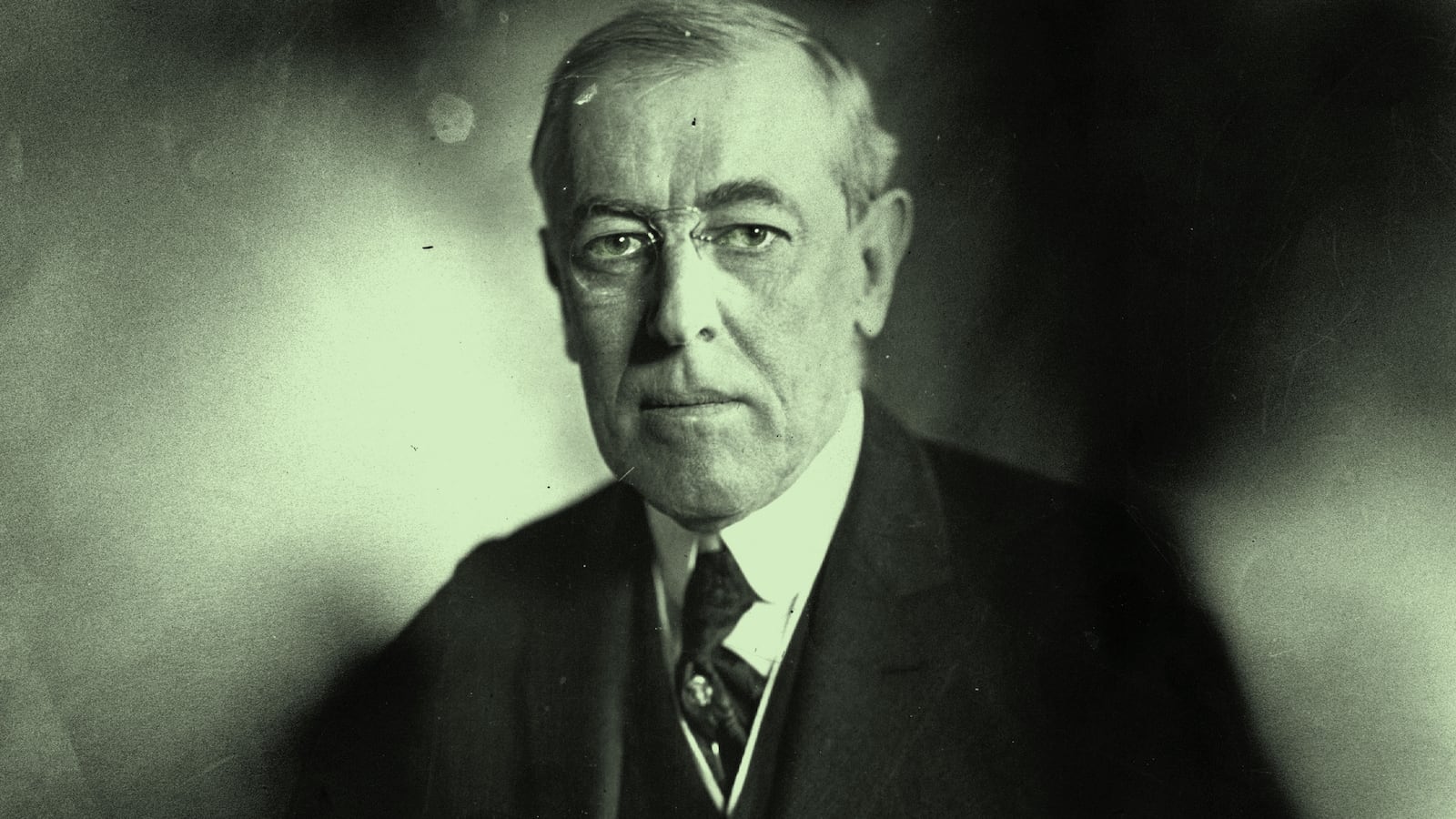David Frum, in a recent column for The Atlantic, called for the “uncanceling” of Woodrow Wilson. Decrying that both sides of the American political divide don’t hold the 28th President of the United States in high esteem, Frum blames “identity politics” in the “the American left,” and cannot understand why historians once ranked him fourth-most important president in 1948 and 1962, but now are typically quite critical of his legacy, particularly his treatment of Black Americans.
In Frum’s take, Black humanity is a side note, but the experiences of working Black people decimated by Wilson’s segregationist policies should not be an afterthought.
Indeed, among segregationists Wilson was never a firebrand, but the effect of his silences—along with the political power of the racial separatists he appointed—made him one of the most draconian segregationists ever to serve as President of the United States.
When Wilson is considered from the point of view of Black workers—the men and women whose lives and labors I chronicle in my book, Black Folk: The Roots of the Black Working Class—he isn’t simply a man of his times. He is not just the beginning of an inevitable shift toward segregation, he represents a purposeful turning back of Black progress that had been made since Reconstruction.
When Wilson was elected, there were some Black leaders who were hopeful. There was widespread disappointment with President Theodore Roosevelt’s treatment of Black soldiers in the wake of the Brownsville riot, where Black soldiers had defended Black Houstonians from a police attack. Roosevelt discharged all but three of the over 100 soldiers involved in the conflict without trial.
The administration of William Howard Taft proved to be no better; he failed again and again to intervene on behalf of Black Americans in the era of southern lynching and disfranchisement. So leading voices like W. E. B. DuBois of the National Association for the Advancement of Colored People (NAACP) and William Monroe Trotter of the Boston Guardian were hopeful that Wilson’s promises to be fair to all signaled that he would support equitable policies for Black Americans.

Woodrow Wilson the 28th President of the United States makes a campaign speech in Virginia.
Hulton Archive / GettyInstead, Wilson ushered in a new era of segregation.
He appointed southern segregationists to head the federal agencies that employed the most Black workers. Notable among them was his appointment of Josephus Daniels as the Secretary of the Navy. Daniels was the publisher of Raleigh, North Carolina’s News and Observer. On its pages he stoked fears that fueled the Wilmington Insurrection of 1898, an overthrow of Black elected officials in the city of Wilmington, and the murder and banishment of hundreds of Black residents. It was the only successful coup d’état in American history. Wilson rewarded Daniels for his part in the coup with a federal appointment.
Wilson’s postmaster general, Albert Burleson, re-segregated the Post Office Department for the first time since Reconstruction. Shortly after the United States Post Office was established in the U.S. Constitution—creating the only constitutionally mandated working-class jobs in the country—it was segregated by an act of Congress, not once, but three times in 1802, 1810, and again in 1825. The laws ensuring that only “free white persons” could serve as mail carriers were upheld for generations.
So, the work of desegregating the Post Office after the Civil War was an important change, a change demanded by Black Civil War veterans. Because of their demands almost five hundred Black Americans were hired during Reconstruction. By 1910, 4,000 postal employees were Black.
Federal jobs were the best jobs available to Black workers during an era of widespread racial discrimination. Black workers were hardly ever considered for most private companies except at the lowest levels, no matter their education or attainment, so inclusion in the postal ranks was an important opportunity for dignity, fair pay, decent hours, and chances for promotion.
Wilson’s administration decimated decades of advancement for Black employees. The highest-ranking Black postal workers were fired because, as supervisors, they were said to be a rape threat to white women workers in their units.
Those who were kept were demoted, then forced to work in degrading conditions; in alcoves, partitioned off from white workers by lockers, banished from using cafeterias, and forced to use bathrooms that were far from their assigned workstations. One employee who had to have contact with others because of his assignment was partitioned into a cage, so that he would not have physical contact with his white coworkers.
In addition to the humiliating policies of physical segregation, in 1914 Wilson required that all applicants for federal jobs anywhere in the country submit a photograph with their application, so that the Black applicants could be more effectively weeded out and taken out of competition with white applicants.

Woodrow Wilson is shown working at his desk.
GettyStrangely, Frum mentions much of this history in his assessment of Wilson but says that his “bigotries… were common among people of his place, time, and rank” and that a “fixation” on his actions “demands explanation.”
For me, the explanation is that Wilson wasn’t common, he was extraordinary. He turned back the clock on more than four decades of progress for Black workers and ushered in an era of segregation that had not been experienced since Reconstruction.
While it might seem to affect just the 4,000 black workers who were employed by the Post Office, the signal sent by the Wilson administration was profound.
His actions made segregation and all its attendant humiliations more commonplace throughout the nation. He used his presidential power to give segregation a national endorsement. He amplified its logic—that Black men had to be physically separated from white women or else they would rape them.
Indeed, this was the undergirding logic of extra-legal white mobs lynching Black people across the nation. Although Wilson claimed to be against such violence, his segregationist policies added meat to the bones of the monster of American racism, tacitly endorsing physical, economic, and psychological violence for more than a generation.
Wilson also needed the support of Southern Democrats with strongly anti-Black views if his ambitious program of progressive economic reform was to be enacted. This was his overriding goal and, as historian Kendrick Clements wrote, “Wilson’s attitude was always that there were more important issues to be pursued than racial justice.”
David Frum might think it’s time to “uncancel” Wilson, but there’s no need. The notion of canceling a president, as we now all know, is a farce. Frum might be looking for a model, but there is no need to try and soften the brutal impact Wilson’s policies and alliances left on Black Americans.








